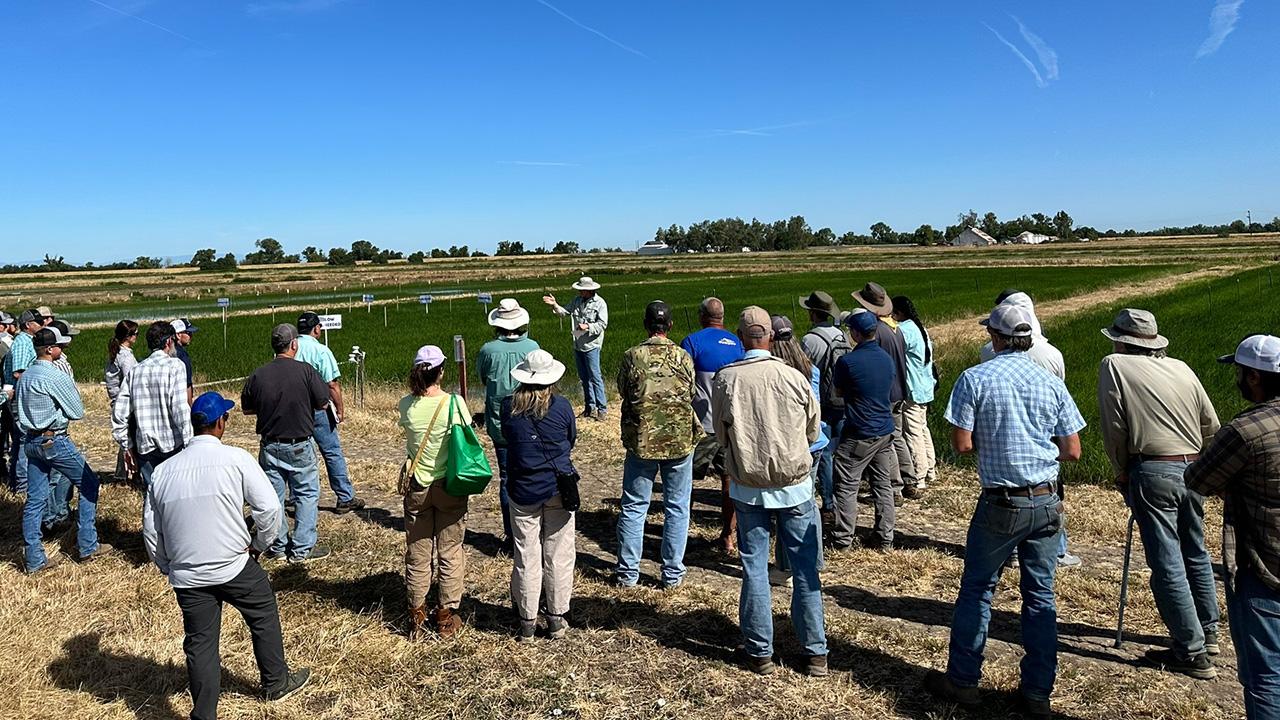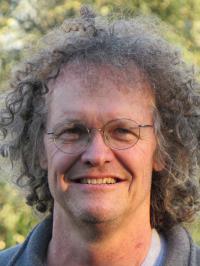
Linquist named SSSA fellow
Future work: Explore no-till in rice to reduce water, costs

For many years, agronomist Bruce Linquist has been studying and sharing the benefits of cultivation techniques that reduce water use and farmers’ expenses in the water-intensive crop of rice. Now, the Soil Science Society of America has recognized Linquist’s leadership and research excellence, naming him a fellow of the society.
Linquist was among 11 people honored for 2024. He’s a professor of Cooperative Extension in the UC Davis Department of Plant Sciences, with collaborative research projects in the United States, Europe and Asia. His focus is on sustainability of rice systems, including nutrient management and fertility, the quality of water leaving rice fields and greenhouse gas emissions. His educational efforts extend to legislators and policy makers.
“I have a number of mentors that I highly respect who have received this award, and it is an honor to be in a group with them,” Linquist said when he learned of his award.
One of Linquist’s areas of focus is the benefits of reducing or eliminating the tilling of land. While tilling is common practice, reduced tillage helps preserve the soil's natural structure, conserves organic matter, boosts beneficial organisms in the soil and makes it more resistant to erosion -- plus, it reduces soil compaction by farm equipment. In addition to reducing tillage costs, farmers can also use less water, an increasingly valuable resource.
“In the near future, I hope to explore no-till in rice systems as an opportunity to reduce water use and input costs,” Linquist said. “I am happy that the work from my lab and of many students is being developed into a recognized climate-smart practice for California rice farmers that could help them with their bottom line.”
Award recognizes “outstanding contributions”
The Soil Science Society of America recognizes agronomic scientists each year for their "outstanding contributions to soil science through education, national and international service, and research," according to the society's website.
Linquist just completed a six-year term as the department’s vice-chair of Extension, the society noted in a press release. “He received a bachelor's degree from Texas A&M and a Ph.D. from UC Davis. Prior to his current position, he worked with the International Rice Research Institute for eight years. He is internationally recognized for his research on the sustainable intensification of rice systems.”
Linquist and team also maintain an informational website for the UC Rice Research and Information Center.
“He served as chair of international agronomy and was an associate editor for the Soil Science Society of America Journal. He has more than 120 peer-reviewed publications,” the society reported.
“While providing statewide wide leadership for the California rice industry, he also provides national and international leadership, particularly in the areas of greenhouse gas emissions and mitigation in rice systems; water and nutrient management; and yield gap analysis," the society, based in Madison, Wisc., added. "He is frequently asked to present his research at national and international conferences."
Fellows will be recognized at the society’s international annual meeting on Nov. 11 in San Antonio, Texas.
Related links
- The latest research from Linquist’s lab was shared at the No-till Rice Field Day, held recently in Biggs, Calif.
- Read Linquist’s blog about the advantages of not tilling rice fields.
- Check out the resources for growers, pest control advisors and anyone involved with rice at the UC Rice Research and Information Center.
Media Resources
- Trina Kleist, UC Davis Department of Plant Sciences, tkleist@ucdavis.edu, (530) 754-6148 or (530) 601-6846
